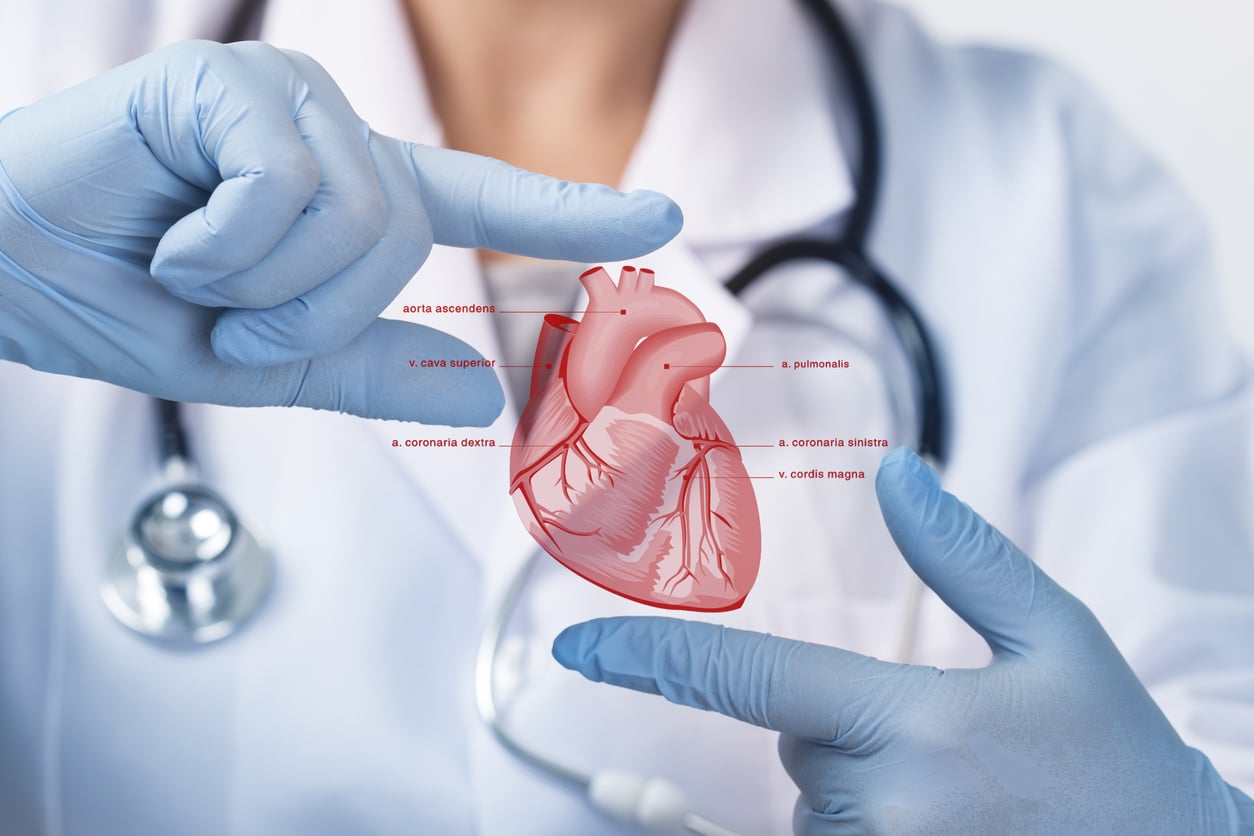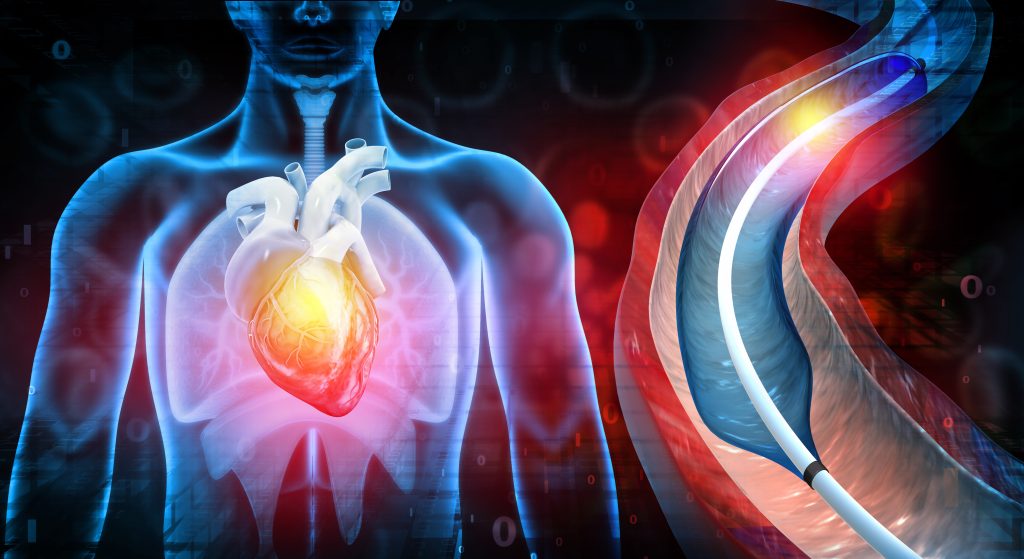How Dr Garcia helps patients protect heart health
How Dr Garcia helps patients protect heart health
Blog Article
Comprehending the Importance of Cardiology in Modern Health Care Solutions
Cardiology plays an essential role in contemporary health care, specifically as cardiovascular disease continues to be the leading root cause of mortality worldwide. Advancements in diagnostics and therapy have actually changed person treatment, enabling earlier interventions and improved outcomes. Furthermore, the change in the direction of precautionary cardiology equips people to manage their health and wellness proactively. As technology remains to evolve, the integration of ingenious services may further redefine cardiology's effect on public wellness, motivating a better evaluation of arising patterns and their implications.
The Prevalence of Heart Problem and Its Influence on Public Wellness
Heart illness remains the leading reason of death worldwide, its impact expands far beyond private patients to influence public health and wellness systems and economies. The high occurrence of heart disease positions a significant stress on healthcare sources, requiring increased financing for avoidance, rehabilitation, and treatment programs. Public wellness initiatives need to deal with threat elements such as excessive weight, cigarette smoking, and less active way of lives, which add considerably to the increasing occurrence of heart conditions.Moreover, the economic burden related to heart illness is immense, including not only straight medical prices however also indirect costs associated with shed productivity and premature death. Communities face difficulties in taking care of these costs, typically bring about differences in healthcare access and results. As the populace ages and lifestyle-related threats remain to rise, the urgency for reliable cardiology interventions becomes vital. Subsequently, resolving heart disease is not only a matter of specific wellness yet also a vital public health and wellness concern.
Developments in Cardiac Diagnostics and Imaging Techniques
Recent advancements in cardiac diagnostics and imaging strategies have actually changed the area of cardiology, boosting the capacity to detect and monitor cardiovascular disease. Strategies such as heart MRI, CT angiography, and echocardiography have become increasingly sophisticated, giving thorough photos of cardiac structures and features. These modalities permit the very early recognition of conditions like coronary artery illness, cardiac arrest, and valvular disorders.Moreover, improvements in non-invasive diagnostics, such as wearable innovation and remote monitoring devices, have actually equipped individuals and healthcare companies. These tools promote real-time monitoring of heart rhythms and other crucial indications, resulting in timely treatments. Furthermore, artificial knowledge is being integrated right into imaging analysis, boosting accuracy and performance in medical diagnosis.
Developments in Therapy Options for Heart Issues
Recent innovations in cardiology have caused considerable developments in therapy options for heart problems. These include sophisticated medical methods that improve procedural results and arising medications that supply new opportunities for treatment. As the field develops, these technologies play an important duty in improving client treatment and outcomes.
Advanced Surgical Techniques
Technologies in surgical methods have actually transformed the landscape of cardiology, using brand-new hope for clients with heart disease. Minimally invasive procedures, such as catheter-based treatments, have actually significantly minimized recuperation times and health center remains. Methods like robotic-assisted surgery improve accuracy, permitting cosmetic surgeons to browse complicated anatomical frameworks with better precision. Furthermore, improvements in imaging modern technology promote real-time visualization during treatments, boosting end results. Transcatheter aortic valve replacement (TAVR) exemplifies an advancement in treating aortic stenosis, allowing valve replacement without open-heart surgical treatment. Furthermore, hybrid techniques that integrate surgical and catheter-based methods provide tailored remedies for numerous heart concerns. These sophisticated surgical techniques not only boost person safety and security but likewise expand treatment alternatives, emphasizing the important role of technology in contemporary cardiology methods.
Arising Drugs and Therapies
As the landscape of cardiology proceeds to progress, emerging drugs and therapies play a critical role in boosting therapy options for heart problems. Technologies such as novel anticoagulants and progressed lipid-lowering agents have actually changed the management of cardio illness, greatly reducing person morbidity and death. Additionally, the growth of gene treatments and regenerative medicine supplies appealing methods for dealing with conditions formerly deemed incurable. Medical tests are constantly exposing the efficacy of these treatments, pushing the limits of traditional treatments. The assimilation of electronic wellness innovations helps with individualized medicine, allowing for customized therapy plans based on genetic and way of living elements. Collectively, these innovations underscore the dynamic nature of cardiology, enhancing person outcomes and redefining requirements of treatment in modern-day healthcare.
The Role of Preventive Cardiology in Individual Treatment
Preventative cardiology plays an important function in client treatment by concentrating on the recognition of threat variables that contribute to heart disease. Through way of life alteration approaches and very early discovery strategies, healthcare service providers can successfully minimize the occurrence of cardiovascular events - Cardiology. This positive strategy not just enhances individual end results yet likewise promotes long-lasting health
Risk Factor Identification
While cardiovascular diseases remain a leading source of morbidity and death worldwide, reliable danger element recognition acts as a cornerstone of preventative cardiology. Determining danger variables such as hypertension, hyperlipidemia, family, and diabetes mellitus background is vital for early treatment. Healthcare specialists use different screening approaches to assess these factors, enabling tailored safety nets. Furthermore, recognizing an individual's lifestyle selections, such as cigarette smoking and physical inactivity, better educates risk assessments. This thorough analysis allows clinicians to create customized treatment plans intended at mitigating threats. By focusing on risk aspect recognition, health care systems can boost patient results and reduce the general burden of heart diseases, ultimately adding to boosted public browse around this site health methods and resource allocation.
Way Of Living Modification Techniques
A plethora of studies highlights the vital duty of way of living modification techniques in minimizing heart disease risk. These methods incorporate nutritional changes, enhanced physical task, smoking cigarettes cessation, and weight management. By adopting a heart-healthy diet rich in fruits, vegetables, whole grains, and lean proteins, people can reduce cholesterol degrees and blood pressure. Routine physical task reinforces the heart and boosts total cardio health and wellness. Additionally, stopping smoking cigarettes substantially lowers the danger of heart problem and improves recovery prices for those with status quo. Weight monitoring further adds to cardiovascular wellness by minimizing various other danger aspects such as diabetic issues and high blood pressure. Carrying out these way of life changes not only promotes specific health however likewise serves as a cornerstone of preventative cardiology in patient care.
Early Discovery Strategies
Way of life adjustments significantly contribute to minimizing cardio disease risks, yet they are most efficient when matched with early discovery techniques. Preventative cardiology highlights the significance of recognizing prospective heart issues prior to they intensify right into severe conditions. Strategies such as high blood pressure monitoring, cholesterol testing, and progressed imaging modern technologies like echocardiograms play vital functions in reviewing cardio health. Biomarkers and hereditary testing additionally enhance the accuracy of early discovery, enabling for tailored preventive approaches. Regular heart risk analyses equip healthcare suppliers to intervene proactively, possibly preventing cardiac arrest and strokes (Cardiology care). By incorporating these very early detection approaches into regular treatment, patients can take advantage of prompt lifestyle interventions and targeted therapies, inevitably boosting and improving end results lifestyle
Integrating Innovation Into Cardiology Practices
As innovations in technology remain to improve numerous fields, the combination of innovative devices and systems right into cardiology practices has ended up being crucial for enhancing client care and outcomes. Telemedicine platforms permit cardiologists to keep an eye on people remotely, improving access to care while decreasing the problem on health care facilities. Wearable devices, such as smartwatches, allow constant heart price tracking, informing both physicians and clients to prospective problems in real-time. In addition, expert system (AI) is being utilized to analyze vast amounts of heart data, helping in very early medical diagnosis and personalized treatment plans. Advanced imaging methods, including 3D echocardiography, improve visualization of heart structures, leading to more precise treatments. Digital health and wellness documents (EHRs) simplify person info administration, guaranteeing that cardiologists have immediate accessibility to critical information. Together, these technological developments are transforming cardiology, advertising positive management and improved wellness results for clients with cardiovascular problems.
The Importance of Individual Education and Engagement
Person education and learning and interaction play a pivotal function in the management of cardiovascular wellness. By furnishing patients with expertise regarding their problems, therapy options, and lifestyle changes, doctor equip people to take an active duty in their care. This proactive technique can result in boosted adherence to prescribed medicines, dietary changes, and exercise regimens, eventually minimizing the danger of complications.Engagement also cultivates a solid patient-provider relationship, urging open communication and count on. When individuals feel educated and included, they are more probable to voice issues and ask concerns, which can bring about better medical results. In addition, educational sources, such as workshops or electronic platforms, can enhance understanding and promote self-management techniques. Generally, prioritizing person education and learning and engagement is vital for boosting cardio wellness, boosting lifestyle, and lowering health care expenses connected with cardiovascular illness.
Future Patterns in Cardiology and Their Prospective Impact

Frequently Asked Questions
What Way Of Living Adjustments Can Minimize Cardiovascular Disease Danger?
The current question addresses way of living modifications that can significantly decrease heart problem risk. Cardiology care. Adopting a well balanced diet plan, taking part in regular physical task, preserving a healthy weight, taking care of anxiety, and preventing tobacco can especially enhance cardio health and wellness
Exactly How Can I Identify Early Signs of Heart Issues?
Recognizing early indicators of heart issues involves tracking symptoms such as upper body pain, lack of breath, fatigue, and uneven heartbeat. Prompt awareness of these signs can motivate required clinical assessment and treatment for much better end results.
What Are the Differences In Between Cardiologists and Cardiac Surgeons?
The differences between cardiologists and heart surgeons hinge on their functions; cardiologists mainly detect and manage heart conditions via non-invasive methods, while heart surgeons carry out surgeries to fix architectural heart issues. Each plays an important, distinctive function.

Just how Usually Should I Obtain My Heart Health Checked?
The frequency of heart checkup varies based on individual threat elements. Typically, grownups must undergo analyses every one to 2 years, while those with status quo might need more constant evaluations as recommended by healthcare specialists.
What Function Does Genetics Play in Heart Problem Danger?
Genes considerably influences heart problem threat, with familial patterns indicating acquired conditions. Certain genes can incline individuals to high blood pressure, cholesterol problems, and various other browse this site cardiovascular troubles, highlighting the value of genetic testing in evaluating heart wellness. Heart disease continues to be the leading cause of fatality worldwide, its influence extends much beyond private patients to impact public wellness systems and economic situations. Public wellness initiatives need to address danger variables such as weight problems, smoking cigarettes, and sedentary way of livings, which add substantially to the rising incidence of heart conditions.Moreover, the financial burden connected with heart condition is tremendous, encompassing not just straight medical prices but likewise indirect costs connected to lost productivity and early death. Preventative cardiology plays a vital duty in person care by concentrating on the recognition of risk factors that contribute to heart illness. Fabricated knowledge (AI) and machine knowing are improving diagnostics and individual surveillance, making it possible for early detection of heart illness. The distinctions in between cardiologists and heart specialists exist in their duties; cardiologists largely manage and diagnose heart problems through non-invasive techniques, while cardiac specialists do medical procedures to remedy structural heart problems.
Report this page